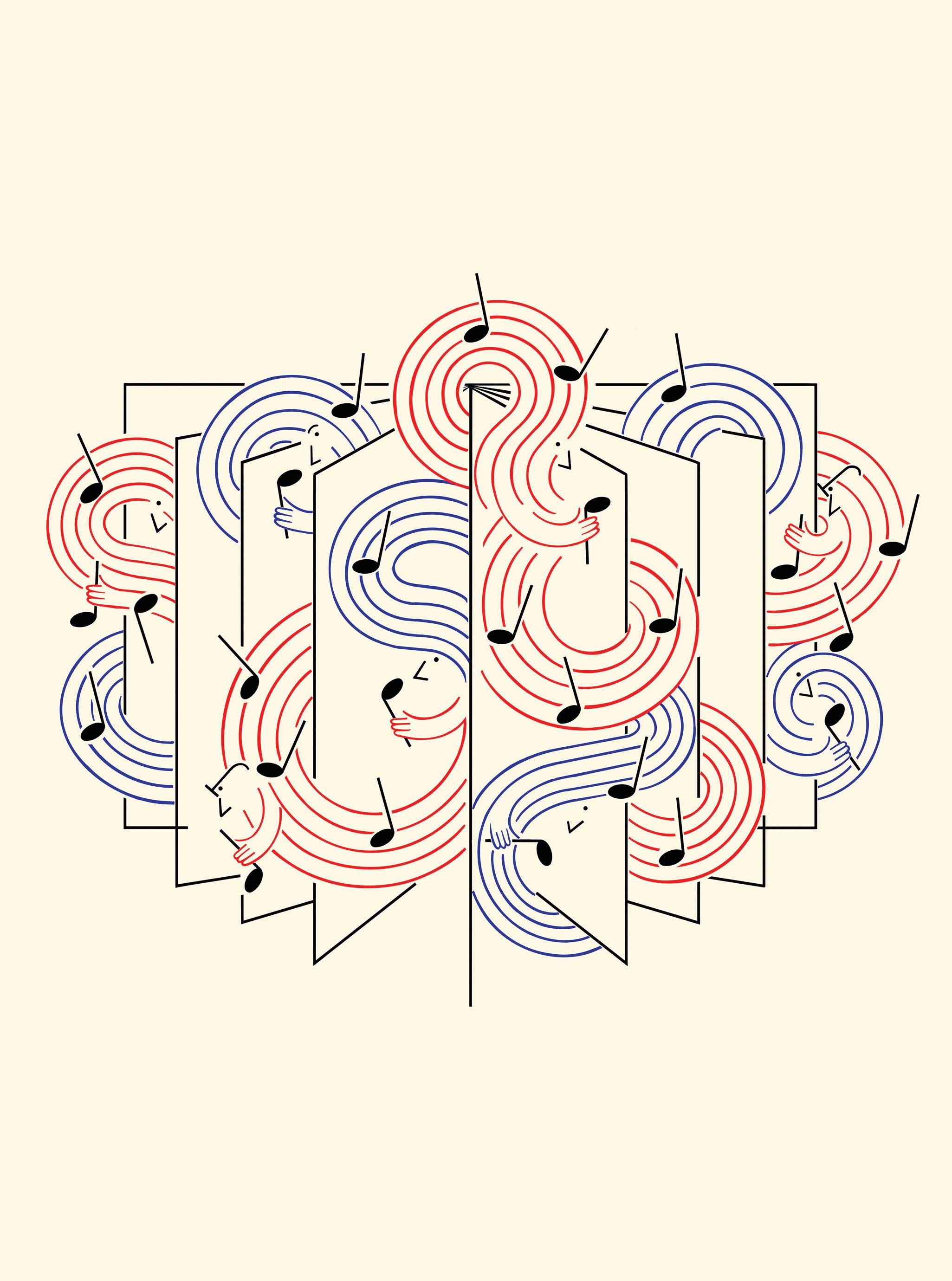試す 金 - 無料
What Is Classical Music?
The Atlantic
|May 2025
The term is applied to radically different compositions across more than 1,000 years of history. We need a better definition.

If most music lovers were asked to identify the defining characteristics of their favorite genre—jazz, folk, rock, hip-hop—I would guess that they might simply say, “Well, it sounds a certain way.” It’s music, they might go on, that tends to have a particular rhythmic feel, or that usually features, say, the saxophone, or the electric guitar, or the sitar. Presented with exceptions to these patterns—what about a cappella jazz ensembles? what about “unplugged” rock albums?—most listeners would likely offer some variant of I know it when I hear it!
But, counterintuitive though it might seem, I don't think sound is always a helpful way to understand genre. I'm a composer and conductor in the field that’s broadly known as Western classical music, aterm that’s routinely applied to radically different idioms across more than 1,000 years of musical history. Within this huge array, you'll find the engulfing sonorities of William Byrd’s choral music; the intimate revelations, too private for words, in chamber works by Franz Schubert and Anton Webern; the majestic topography of Jean Sibelius’s orchestral landscapes; and, more recently, a multitude of works by composers as different from one another as Chaya Czernowin, Tyshawn Sorey, and Thomas Adès.
このストーリーは、The Atlantic の May 2025 版からのものです。
Magzter GOLD を購読すると、厳選された何千ものプレミアム記事や、10,000 以上の雑誌や新聞にアクセスできます。
すでに購読者ですか? サインイン
The Atlantic からのその他のストーリー

The Atlantic
You Had to Be There
An emerging field of history asks if we can ever really understand how our forebears experienced love, anger, fear, and sorrow.
23 mins
January 2026

The Atlantic
By the Horns
The week before the biggest bullfight of her career, in Cádiz, Spain, this past July, 24-year-old Miriam Cabas posted a carefully produced video on Instagram.
1 mins
January 2026

The Atlantic
The New German War Machine
After World War II, Germany embraced pacifism as a form of atonement. Now the country is arming itself again.
18 mins
January 2026
The Atlantic
The Eloquence
The prime minister was watching a disaster movie when we found him.
4 mins
January 2026

The Atlantic
What's for Dinner, Mom?
The women who want to change the way America eats
12 mins
January 2026

The Atlantic
How Terror Works
A 1947 German novel explores the sometimes corrosive, sometimes energizing nature of fear.
8 mins
January 2026

The Atlantic
Yesterday's Idea of a Modern Man
Sam Shepard, a self-made cowboy, was also a poet of masculine angst.
7 mins
January 2026

The Atlantic
ACCOMMODATION NATION
America's colleges have an extra-time-on-tests problem.
11 mins
January 2026

The Atlantic
Respect the Drummer
A new history of rock, told through its overlooked heroes
5 mins
January 2026

The Atlantic
THE MOST POWERFUL MAN IN SCIENCE
WHY IS ROBERT F. KENNEDY JR. SO CONVINCED HE'S RIGHT?
42 mins
January 2026
Listen
Translate
Change font size
